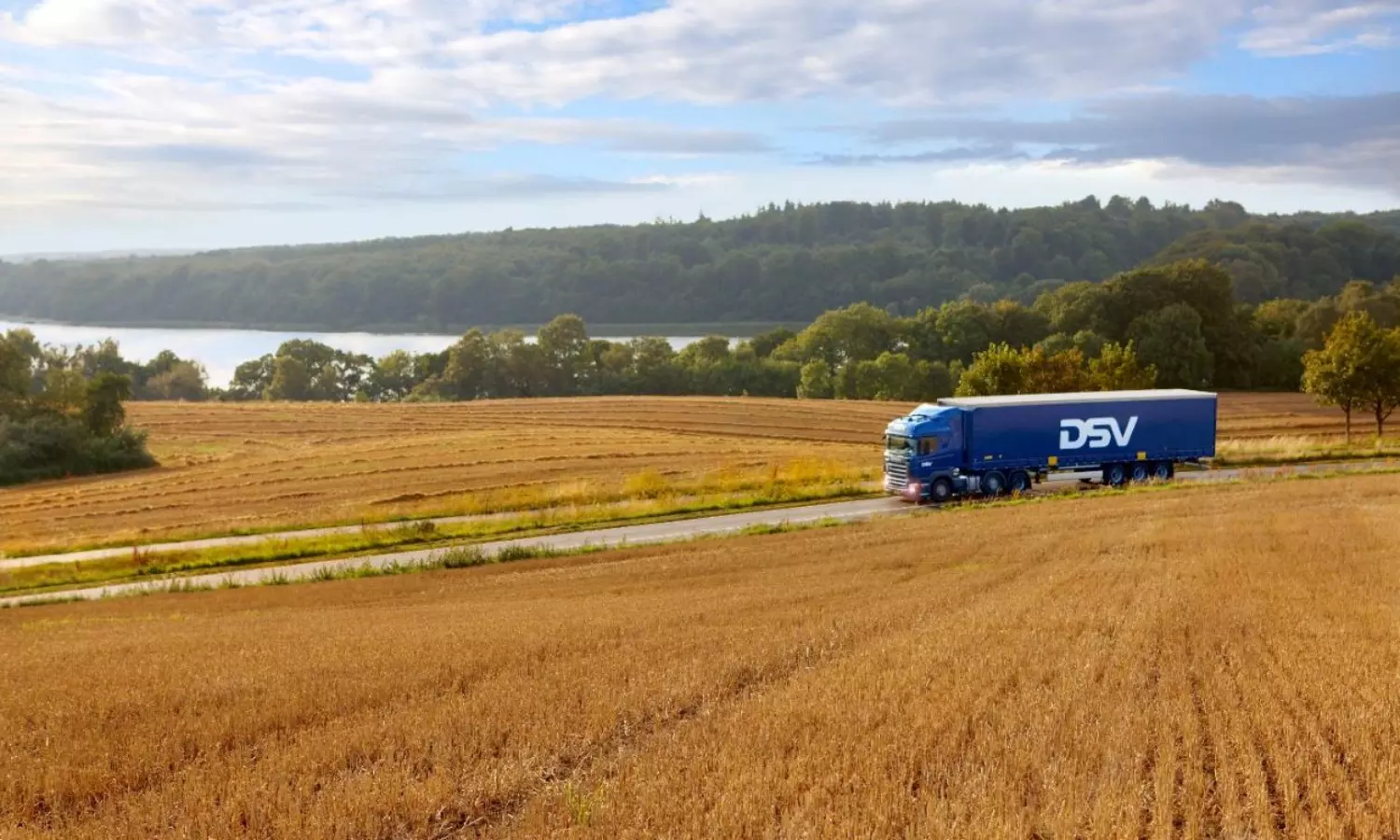DSV participates in ELISA eHighway project, that seeks to electrify road freight
In Frankfurt, Germany, DSV is participating in a research project working to test and establish an eHighway that could enable fully electric long-distance road freight

One day, it might be possible for trucks to charge while driving, using an overhead contact line. In Frankfurt, Germany, DSV is participating in a research project working to test and establish an eHighway that could enable fully electric long-distance road freight.
Imagine this: an electrified highway stretching all through Europe, allowing on-the-go charging and enabling long-distance electric trucks as a feasible freight mode.
Supporting the company's long-term targets for the reduction of carbon emissions, the leading transport and logistics company DSV is participating in and supplying data for the ELISA eHighway project, which might one day turn this image into reality.
DSV's participation in the project is one of many initiatives in which the company plays an active role in supporting innovative projects that will be crucial in the green transition.
New technologies such as long-distance electric road freight will be central to DSV achieving its 2030 ambition to lower its indirect emissions by 30% and ultimately achieve net-zero emissions by 2050.
Avoiding the Suez Canal of road transportation
Electric vehicles will be central to the green transition of the industry. But today, there are considerable limitations that hinder a smooth and successful shift to especially long-distance electric trucks:
"Without the right levels of infrastructure, there is a danger that charging stations will be the Suez Canal of road transportation and the cause of significant delays and congestion for electric vehicles. If the eHighway is established and expanded across Europe, it would create new possibilities when it comes to introducing long-distance electric trucks and offering lower-emission services without any delays for our customers. As a leading company in the industry, we see it as our responsibility to contribute to the early stages of the development of new technologies such as the eHighway," says Søren Schmidt, CEO, of DSV Road.
Through the ELISA eHighway project, a range of project partners would work to establish an electric highway that allows for easy on-the-go charging of electric vehicles, eliminating downtime spent on charging and eventually enabling a transition to electric long-distance trucks.
Trucks driving on eHighway test tracks are equipped with roof sensors that detect an overhead contact line above the truck, which then connects to the line through a pantograph and charges while driving.
Collaborating to solve the challenge
Participating in the project, DSV is collaborating with researchers from the Institute of Transport Planning and Traffic Engineering at the Technical University of Darmstadt who are collecting and analyzing data to scientifically evaluate the development of the eHighway.
Since the beginning of February, a subcontracted DSV driver has been using the 10, soon to be 17, kilometer eHighway test track in Frankfurt, transporting customers' goods to and from Frankfurt Airport.
Through a data logger in the truck, data concerning more than 150 parameters such as battery charging state and fuel rate is sent to researchers from the Institute of Transport Planning and Traffic Engineering at the Technical University of Darmstadt. Additionally, the researchers conduct weekly evaluation interviews with the driver.
Supplying data for research, DSV seeks to help bridge a gap between the industry and academia."We are excited to provide daily data from actual operations, which can help in the development of the eHighway. The ELISA eHighway project is a great example of collaboration in and between the industry and academia, which will be absolutely critical as we work towards a sustainable solution to the biggest challenge of our time," says Søren Schmidt.
Eva Kaßens-Noor, professor at the Technical University of Darmstadt, agrees that collaborating across academia and the industry is important. "The benefits of a collaboration between academia and the industry are the synergies between both: new research-driven innovations can infuse the development of novel technologies. Thus, we jointly advise policymakers through a cutting-edge, collaborative, and interdisciplinary approach to transforming our traffic system towards sustainable and climate-resilient systems," she says.
In addition to the track in Frankfurt, which DSV is currently testing, the project includes test tracks in the German cities of Stuttgart and Lübeck. The current phase of the project runs until the end of 2024. Project partners are applying for funding for a potential next phase, allowing for further development of the eHighway.


